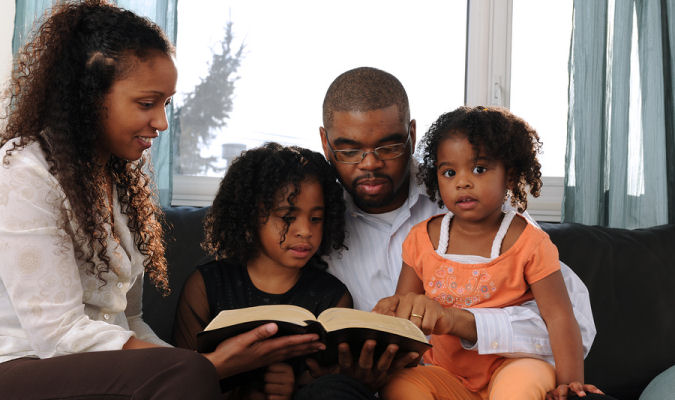Dinah, the daughter of Jacob, made wrong choices in her life and bears responsibility for her actions. However, I will not exonerate her parents—particularly her father—from her misfortune. It is the responsibility of parents, especially fathers, to provide the best spiritual, physical, and social atmosphere for their children. We often think highly of Dinah, assuming she was a follower of God, but she was not.
Spiritual Environment
Jacob did not make the Lord his God at Bethel, as his father and grandfather had done, when he was on his way to Panda Aram (Syria). Although God was with him for the sake of the covenant He made with his Abraham and Isaac (Gen. 28:15, 20-21), Jacob relied on the arm of flesh – his own ways – while in Laban’s house, except on a few occasions when God, in His mercy, intervened.
It is unfortunate that Jacob’s wives and children lived and were raised in the idolatrous home of Laban. Jacob did not walk with God like his forefathers, nor did he teach his family God’s ways, as God testified about Abraham (Gen. 18:19). However, when he was about to leave Syria, he acknowledged the God of his father and grandfather and shared with his wives the instruction God had given him (Gen. 31). At this point, the only recorded religious tradition he had introduced to his family was the rite of circumcision.
This indicates that his family was initially raised—at least during their time in Laban’s house—as unbelievers who worshipped idols. This was later confirmed when they had to put away their pagan idols before they could meet with God at Bethel after Dinah’s experience at Shechem. One of the reasons Abraham did not want Isaac to go to Syria to find a wife was his fear that Isaac would be exposed to idolatry.
“Then Jacob said unto his household, and to all that [were] with him, Put away the strange gods that [are] among you, and be clean, and change your garments: And let us arise, and go up to Bethel; and I will make there an altar unto God, who answered me in the day of my distress, and was with me in the way which I went. And they gave unto Jacob all the strange gods which [were] in their hand, and [all their] earrings which [were] in their ears; and Jacob hid them under the oak which [was] by Shechem.” – Genesis 35:2-4
Social Environment
It is conceivable that Dinah freely mixed and interacted with the girls of Shechem, as she neither had a personal relationship with God nor was not raised in God’s way (Gen. 34:1-2). The norms and culture of Shechem aligned more closely with her social background in Syria. There was little distinction between her lifestyle and that of the daughters of Shechem.
As we have seen in Genesis 35:2-3, she with her father’s household were unclean and served strange gods. Their garments and adornment had to be changed before they could meet God – suggesting they were distinct from the people of the world.

As parents, are we leading our children to Jesus?
Are we sanctifying our children with the Word of God, or are we simply raising them to be mere churchgoers—religious observers without a personal salvation experience?
What strange gods or idols are our children being exposed to today? Could it be their clothing, social media, phones, or TV shows?
Don’t blame them when you see them socializing with the daughters of Shechem or when they begin to form ungodly friendships with the sons of Shechem. If we have only raised them to be religious—without consistently teaching and modeling the Scriptures before them—then we have failed in our spiritual duty.
They are not yet saved by grace through Christ Jesus. Jacob introduced outward religious rites like circumcision to his children, but the inward work of salvation had not yet been wrought in them.
You may have taken measures to ensure your children dress modestly or avoid bad company—and they may even comply—but if they remain unregenerate, inwardly they may still be lusting after worldly things: immoral dressing, ungodly friends, and sinful pleasures.
These outward, traditional religious practices can give them a false sense of superiority over the “uncircumcised” (sinners), making them feel self-righteous and conceited. Yet inwardly, they may still be rotten—mere hypocrites.
The circumcision God desires is first of the heart—a transformation that then bears fruit outwardly, including in their appearance, their values, and their associations.
If we omit the centrality of the Gospel—its clarity and power—in raising our children, we should not be surprised if they go the way of Dinah, Simeon, and Levi.
Let us therefore make it our priority to nurture, instruct, and lead our families in the way of the Lord, teaching them to observe all that Christ has commanded us in His Word.
“And these words, which I command thee this day, shall be in thine heart:
And thou shalt teach them diligently unto thy children, and shalt talk of them when thou sittest in thine house, and when thou walkest by the way, and when thou liest down, and when thou risest up.
And thou shalt bind them for a sign upon thine hand, and they shall be as frontlets between thine eyes.
And thou shalt write them upon the posts of thy house, and on thy gates.”
— Deuteronomy 6:6–9
Prayer Point
Father, please help me to dwell where You are, for the total consecration and sanctification of myself and my family. Amen.








